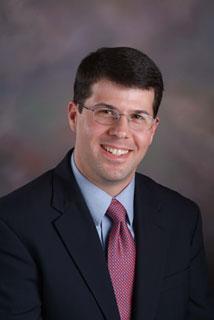
As public servants, we attend our share of ugly public meetings. Meetings that after adjournment, we wonder whether or not we chose the right profession or if we have the will to continue.
The sometimes-tumultuous democratic process can fatigue managers. The verbal battering of local officials at meetings by unhappy residents is wearing. When angry taxpayers “hijack the podium” with a relentless barrage of what local government is doing wrong, it is easy to lose faith. Managers can develop a “bunker mentality” and quickly lose a healthy perspective about their community role. When discouragement settles in, it is important and necessary to step back and evaluate work, life, and to seek a fresh perspective.
I was very fortunate to find a fresh perspective at the Kennedy School of Government Senior Executives in State and Local Government Program at Harvard University this past summer. Sometimes, new perspectives are found in unusual and surprising ways. For me, that fresh outlook came from a former communist party official.
During one of the program’s luncheons, the class was introduced to Yang Jianli. After his introduction, Jianli wrote the name “Henry Degroot” behind him on a white board. Jianli went on to explain that Degroot is a Newton North High School senior who was prohibited from attending his high school prom. The disciplinary action taken against Degroot was the result of his actions while studying abroad in China. Degroot wrote “pro-democracy” notes in a Chinese student’s notebook. Chinese officials found out and were furious. When Degroot arrived home, the school administration admonished him for making "political statements" and embarrassing the school. Jianli shared his concern about how the school treated Degroot, but was even more alarmed that school officials would penalize a student for exercising free speech, an element of practicing democracy.
So what?
Jianli’s father was a high-level communist party official. Although he had questions about communism growing up, his family expected him to follow his father’s path and work his way up in government. In 1989, Jianli was continuing his education as a doctoral student in America. When he heard about the student-led uprising in China, his doubts about the communism lead him to fly home to be part of the pro-democracy movement. He soon found himself in Tiananmen Square where he witnessed the infamous massacre.
Jianli helped the wounded and pulled dead students from the square. He fled China after the massacre. The Chinese government blacklisted him. He was named as one of the top 50 most wanted students involved with leading the "rebellion." Years later another freedom movement began and he went back to China to support it under a false passport.
Jianli did not make it out of China this time. He was captured, tortured and imprisoned for five years. During his jail time, both Presidents Clinton and Bush pushed for his release. When he had the opportunity to leave, he did not, and chose to fulfill the remainder of his sentence so he could one day legally return to China.
After sharing his story with the class - the torture, separation from family, time in prison, and concerns about Degroot - he did something amazing. He stepped back from the podium and gracefully bowed. He bowed to the class, and with deep sincerity thanked us for the work we do - practicing democracy.
I was completely blown away by Jianli’s gesture. I thought to myself, “Why is he bowing to us?” Yes, I have had some difficult meetings but I have never had to place my life in jeopardy to fight for the ability to speak or give an opinion about policy or run from military tanks! Jianli’s experiences and commitment to democracy stirred something deep within me. My “difficult meetings” just did not seem so thorny anymore compared to his commitment with promoting democracy, never mind living through a massacre, imprisonment, and torture.
I realized that over time, I have allowed myself to become complacent, taking for granted the very freedoms he almost died trying to secure. I was very humbled by his expression of thanks and gently reminded that I do not have much to complain about.
Jianli’s message also carried a warning to those of us in public service. We need to be vigilant about preserving and protecting our democratic form of governance at all levels. So maybe next time, when that “difficult” person is at the podium, think about Henry Degroot and Jianli Yang. Managing in a democracy is not easy, nor is it always pretty, but it is ours to value, treasure, and practice.
__________________________________________________________________________________________________________________
Greg Doyon, ICMA-CM, is the city manager of Great Falls, Montana. Doyon was awarded an ICMA scholarship to attend the Harvard Kennedy School Senior Executives in State and Local Government program in June 2014. The Ferguson Group graciously funds the scholarship. (gdoyon@greatfallsmt.net)
New, Reduced Membership Dues
A new, reduced dues rate is available for CAOs/ACAOs, along with additional discounts for those in smaller communities, has been implemented. Learn more and be sure to join or renew today!

